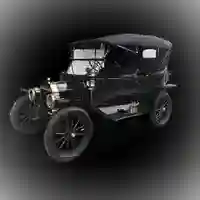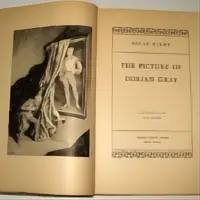What we writers do is called ‘creative’ writing. But what is that, really? What do we have to do, to be ‘creative’ in our writing?
The definition of ‘creative (adjective)’ is ‘involving original ideas in producing an artistic work.’ So, to be ‘creative’ writers, we must make original ideas. Ideas not heretofore conceived by others. Is that a low bar or a high bar? What is original? What is original enough?
‘Creative writing’ is defined as ‘writing, typically fiction or poetry, which displays imagination and/or invention (often contrasted with academic or journalistic writing).’ ‘Invention’ means a product or process that is novel/new/original. And ‘Imagination’ is ‘the action of forming new ideas, images or concepts.’
Maybe we can all agree that ‘creative writing’ requires originality. Unique, new elements. And, if we human writers need to ‘beat AI,’ one way is to be creative, for apparently AI can only mimic what’s been done before.
So, why does it matter whether we are creative?
The logical answer is that we can’t be ‘creative’ writers unless we are creative. That’s a definitional truism. So, what are some ways we might try to be ‘creative?’ There are some ways that don’t work:
Type of Plot: Perhaps the type of plot we employ in our story can make our story original? I don’t think so.
Some believe that all the fiction books ever written can be grouped into just six types of plots. Christopher Booker wrote there are only seven basic plots. There may be no chance any of us can invent a new type of plot. So, our originality must come from somewhere else.
Superb Writing Skills: I do not think that great writing skill has much to do with creativity. Creativity seems different from writing skill. Here’s proof: It’s easy to imagine a very creative idea for a story that is poorly written by the author. And it’s equally easy to imagine the best-written book ever, that has an utterly unoriginal story.

Barriers Erected by Readers and Other Writers: This is a craft with many ‘rules.’ If you don’t observe them all, readers won’t like it. Other writers will complain. Your work may not be marketable. I can’t imagine a worse wet blanket to throw on the fires of imagination.
Henry Ford said, ‘Why yes, Madam. You can have any color of Model T you want, so long as it’s black.’
Some ideas regarding how to be more creative in our writing
If you want your story to have a better chance of being different from the millions of other stories, here are some things to consider:
Unusual characters who do unpredictable things in unusual situations. It might not be saleable, but my heroine–a divorcee with a good job in an uber-violent downtown–is trapped in a corporate criminal enterprise that overcharges her so much for security services that she is homeless. The crooks force her to commit crimes, or else she would have to pay even more. I hope that’s creative.
Make your character complex, deep, and fascinating. This is like candy for a reader who already loves your character. You can go deep in a novel, but it’s hard to do in a short story.
Atypical plot twists. I’m just winging this, but suppose a husband is murdered, and he suspects his spouse did it. His ghost haunts her, driving her crazy from the terror. But he’s really still alive and only faking being a ghost in order to drive her to make a confession. And she’s only feinting making a confession to trap him in some misstep that might prove his own wrongdoing, which was so awful that it caused her to try to kill him.
Different writing style, POV, narrative structure. In my dreams, there is a new language, a new way to write, that is so emotionally powerful it makes readers cry and some even have to seek medical care. But this language seems always just beyond our grasp. So maybe try a little second-person POV or insert a poem in your story. Include some non-fiction in your fiction.
Departure from whatever the conventional wisdom says is ‘the mandatory formula’: Rarely is there only one right way. We’ve haven’t begun to find all the right ways. In most walks of life, we cannot hope to be an individual if we only follow the herd. You don’t have to remain inside a box that someone else puts around you.
Backstories, the wilder, the better: Backstories can give heft to a character and a story.
Shock and Awe: Add more violence, more action, and make it weird!
Objects in the story which you invent just for that story: I invented “Lugahs” in a story this week–huge beasts like buffalo on a faraway world with armored skulls and beaks, plus forward-reaching arms with three-fingered hands. If that animal isn’t unique, maybe the name is.

Make your protagonist unlikeable: I seem to be especially good at this, accidentally, and it bothers conventional readers. For famous unlikeable protagonists, consider Anna Karenina (a woman married to a Count bears a child by another lover then wants to remain in high society but is rejected, sinks into self-pity, and throws herself before a train), or Dorian Gray, or Gone Girl.
If we do the above sorts of things, I believe we’re more likely to be ‘creative.’ And we may also be more likely to attract readers who are hungry for something different and more interesting.
We ‘Speculators’ have an advantage
Speculators (writers of speculative fiction? –that’s my new term I’m trying out here) have a huge advantage in the struggle to be original. We can create a fantasy world unlike any other that’s come before. Or, if we write Sci-Fi, our setting or our alien characters, or what’s important to them, can be unique. If we write about dystopias, the nature of ‘what’s wrong with society’ can be inventive. I have seen the most incredible creativity in the stories put up for weekly critiques. Their authors’ minds (YOUR minds!) are extraordinary. We need to fight to ensure those minds are kept free to roam.
Conclusion
I encourage all of us to make a special effort, in every work we ‘pen,’ to include memorable original elements. Expend the effort to be inventive. Break the rules! Take risks! Let’s strive to deserve the name of our profession: ‘creative’ writers.

Kenton Erwin has had thirteen short stories and three nonfiction books published by Amazing Stories, Suburban Witchcraft, ELA Magazine, Science Fiction Lampoon, The Spectrogram, Gavagai, The Wise Owl, Pulp Asylum, Academy of Heart and Mind, Mobius, and others. Three of his stories were ‘Editor’s Choice” with special banners, fonts, and artwork.
In 2026 he won the Spectacular Quill Award for best story of the year, in 2025 he twice won the Speckled Spectrum Awards, and in 2024 he won Punk Noir’s ‘A Good Death’ writing competition. He’s active in Speculative Fiction Writers Association, is a frequent speaker and writer on writing/publishing issues, and lives in Ridgefield WA, USA.

